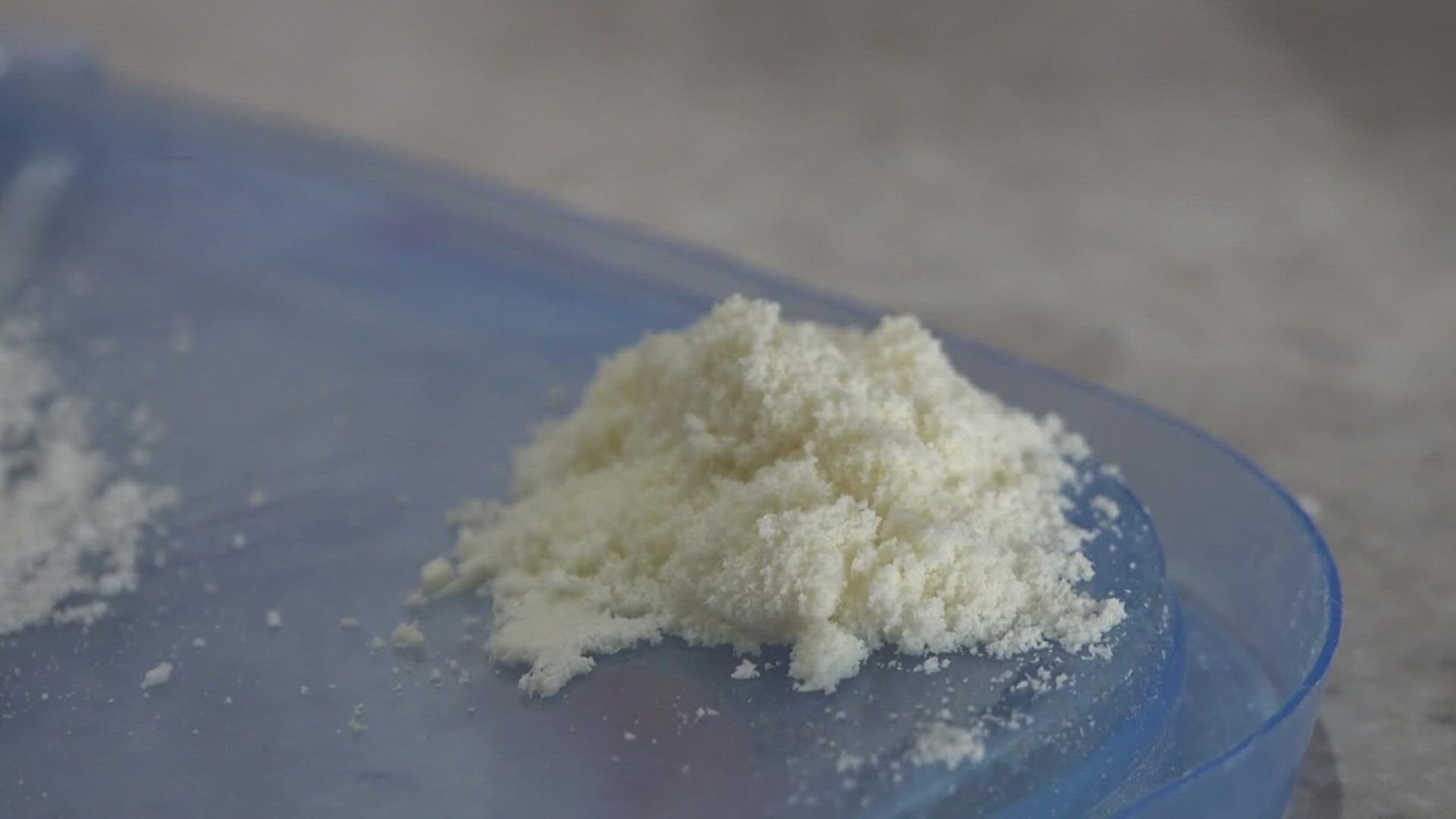FREEPORT, Maine — Amid a critical nationwide shortage, Abbott reached an agreement with the U.S. Food and Drug Administration late Monday afternoon to reopen its Sturgis, Michigan plant that produces infant formula.
But it could be weeks before the site restarts and months before the formula is on the shelves.
In the meantime, parents are struggling. There is widespread information about what parents should not do: dilute formula, make their own, etc.
Maine State Breastfeeding Coalition president Kara Kaikini is a board-licensed lactation consultant who works with new families at hospitals such as Maine Medical Center.
She said it is not uncommon for people to use formula instead of breastmilk as a "bridge" in those first few days after the baby is born.
"We are a breastfeeding coalition. But first and foremost, we are here to support new families," Kaikini said. "Health organizations recommend breast milk feeding, but we know it is not always easy. It can be very hard."
Babies may not latch onto a mother's breast, or it may be a painful latch. Pumping breast milk is one option. If a mother struggles to produce milk, another mother's milk is the next best option, according to the World Health Organization and American Academy of Pediatrics.
A breast milk bank is a safe, reliable way of getting another mother's milk that is safe, tested, and screened for any unsafe substances that a mother may be using, Kaikini said.
The closest one to Maine is Mother's Milk Bank Northeast in Newton, Massachusetts.
But there is a cost. Kaikini estimated a bottle of donated breast milk could cost $4 to $5 per ounce.
Mother's Milk Bank Northeast has two donor milk dispensaries in Maine, but they require families to bring a prescription:
- Personalized Pediatrics of Maine
205 Ocean Ave
Portland, ME 04103
207-409-0901
Open Monday through Friday. Please email (doc@mainepeds.com) or call ahead to arrange an appointment with Dr. Ali Kopelman. - Pediatric Associates of Lewiston, PA
33 Mollison Way
Lewiston, ME 04240
207-784-5782
Open 8 a.m. to 5 p.m. Monday through Friday. Call ahead for an appointment.
For questions, email or call and ask for Darcy Millett, CCMA.
"This whole formula shortage is such an opportunity to be advocating on people's individual insurance companies to say, 'Hey, why not cover the cost of donor breast milk when that is what the World Health Organization recommends as the next best option, and the Academy of Pediatrics,'" Kaikini said. "Insurance companies should be getting on board."
Some private insurances already cover donor breast milk. In 2023, MaineCare will start covering it, too, Kaikini said.
Kaikini also suggests buying store brand baby formula or buying it wholesale, if you can find it. The FDA requires all baby formula, regardless of brand, to meet certain nutritional guidelines.
The Academy of Breastfeeding Medicine suggests several options for parents amid the shortage of formula:

